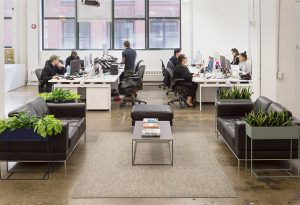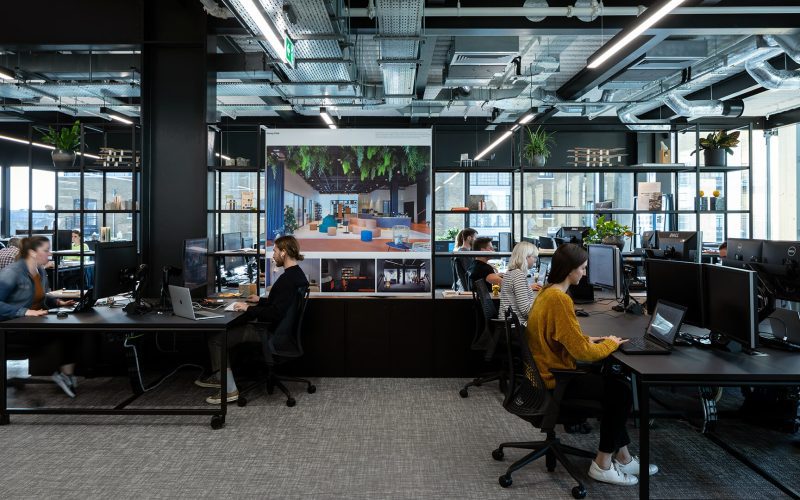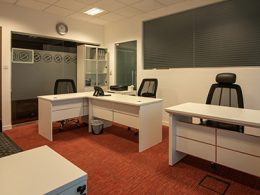Introduction
The traditional workspace, once characterized by bustling offices and cubicles, has evolved into something unrecognizable in the wake of the remote work revolution. With professionals increasingly embracing the flexibility of remote work, the real estate industry is at a crossroads. In this article, we’ll embark on a comprehensive journey to unravel how the real estate sector is responding to the shifting tides of remote work. We’ll explore the challenges it faces, the innovative solutions it’s deploying, and the strategies being crafted to redefine the future of workspace.
The Remote Work Revolution: A Catalyst for Change
The advent of the remote work revolution has been nothing short of a game-changer. Fuelled by technological advancements, this paradigm shift in work dynamics has liberated professionals from the traditional office setting. We’ll delve into the factors that have accelerated this revolution, such as improved connectivity, changing work attitudes, and the need for flexibility. The remote work revolution has forced the real estate industry to take notice and adapt to a workforce that seeks a different kind of workspace.
Real Estate’s Adaptive Challenge: Rethinking Workspace
As remote work gains traction, real estate stakeholders are facing an adaptive challenge. The demand for traditional office spaces has waned, leading to a fundamental reevaluation of the workspace landscape. We’ll explore how office space providers are responding by considering factors like reduced occupancy, repurposing underutilized spaces, and rethinking the design of work environments to align with the evolving needs of remote workers.
Hybrid Work Models: The Confluence of In-Person and Remote Work
One of the most significant outcomes of the remote work revolution is the rise of hybrid work models. These models acknowledge the importance of both remote and in-person collaboration. We’ll investigate how real estate is accommodating these hybrid work arrangements, reimagining the traditional office into a flexible, multi-purpose space that caters to a dynamic workforce.
Technology-Enhanced Workspaces: The Digital Transformation
Technology is the cornerstone of the evolving workspace. We’ll discuss how the integration of smart office solutions, digital collaboration tools, and the Internet of Things (IoT) is redefining workspace functionality. These innovations not only enhance productivity but also ensure that the workspace remains relevant and attractive to a tech-savvy workforce.
Flexible Workspaces: Meeting the Needs of a Diverse Workforce
The demand for flexibility in workspace solutions has surged. We’ll explore the emergence of flexible leasing arrangements, co-working spaces, and adaptable designs that cater to the diverse preferences of remote workers. Flexible workspaces offer not only convenience but also foster creativity and collaboration, essential elements in the new work landscape.

Sustainability and Wellness: New Priorities in Workspace Design
Modern workspaces prioritize sustainability and employee well-being. We’ll delve into the adoption of eco-friendly practices, the integration of wellness features, and the implementation of sustainable designs that create a healthier and more environmentally conscious workspace. These considerations reflect the changing values and expectations of remote workers.
Case Studies: Real Estate Innovations in Response to Remote Work
Real-world case studies provide tangible examples of how companies and organizations are navigating the remote work revolution. We’ll showcase instances where real estate innovations have successfully responded to these challenges, shedding light on strategies and approaches that are shaping the future of workspace.
Expert Perspectives: Shaping the Future of Workspace
To gain expert insights into the future of workspace in the era of remote work, we’ll turn to industry leaders, real estate experts, and workspace strategists. Their visionary perspectives will not only illuminate the path forward but also provide glimpses of a future where workspace adapts, thrives, and continues to play a pivotal role in the evolving work landscape.
Conclusion
In conclusion, the workspace, once a static and predictable environment, is now in flux. The real estate industry is in the midst of a transformation, driven by the remote work revolution. Through hybrid work models, technology integration, flexible solutions, sustainability, and wellness-focused designs, workspace providers are embracing the challenge and redefining the concept of where and how we work. This evolving landscape presents opportunities for innovation, adaptation, and the reimagination of workspace in an increasingly flexible and digital world. Whether you’re a real estate professional, a business leader, or simply someone intrigued by the future of work, one thing is clear: the workspace is no longer confined to four walls but extends to wherever talented professionals choose to work.












